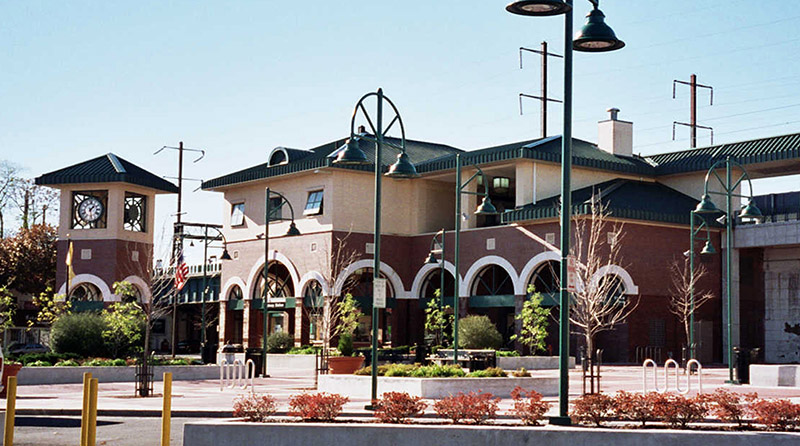At the occasion of Mayor James Kennedy’s final term of office, we had the opportunity to ask him a few questions about Rahway’s efforts to redevelop through transit-oriented development.
Q. Rahway has actively pursued transit-oriented development since the 1990s. What was the impetus and/or rationale for this undertaking?
A. When NJ TRANSIT committed to renovating the Rahway Train Station, we realized what an asset the station was to the community. It was only then that we understood that we had to capitalize on our location and our accessibility to New York City, Trenton and the Jersey Shore.
Q. TOD redevelopment can take many forms. What was the city’s strategy in this redevelopment effort?
A. We decided that we needed to bring people into the downtown. In order to do this, we decided that high-density housing was the key to any success.

Q. What steps did you as mayor take?
A. I created the Rahway Redevelopment Agency in order to streamline the process for redevelopers. We designated the entire central business district as a redevelopment area. And, probably most importantly, I made tough political decisions when we were first starting our process. Pursuing the condemnation of some properties was the most difficult.
Q. What partners did Rahway reach out to?
A. The city needed many partners to redevelop. We worked closely with our municipal council as well as planning and zoning boards. We also worked closely with Union County and we partnered with local business and experts in land-use in order to achieve our goals.
Q. What challenges did Rahway face? How were these overcome?
A. Primarily we faced political opposition, condemnation procedures, and public opinion. Once the first few projects were completed, residents were less resistant to change.
Q. Recognizing that New Jersey is home to many different kinds of communities, what do you think that other communities can learn from Rahway’s experience?
A. You really need three things. First you need strong leadership—someone who will make decisions. Second, you need conviction—a willingness to follow through on those decisions. And third, you need a city government that works together to achieve a common goal.
Q. What do you believe still needs to be accomplished in Rahway?
A. We need to complete work on some projects. We also need to continue building on our efforts to develop cultural arts. We see this as a stimulus for redevelopment.
Q. What are your plans for the future?
A. I plan to stay involved with Rahway’s cultural arts efforts, such as the Union County Performing Arts Center as well as the city’s new amphitheater and performance center. In addition, I would like to spend time with addressing the world water issue and the necessity of clean water in underdeveloped countries.

